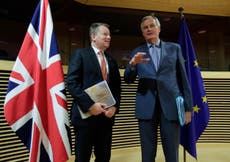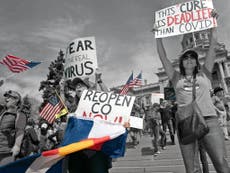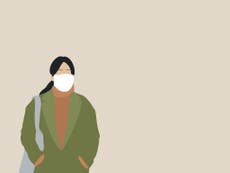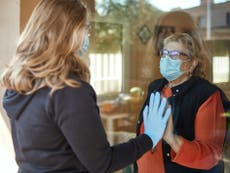My video forced a government U-turn – after coronavirus, there should be no question about the power of our voices
What gets me through long shifts at the hospital is the same thing that got me through my journey from Damascus to the UK – a drive to encourage people to rethink how we treat one another

Since 1 April, I have worked as a cleaner in a Covid-19 ward at my local hospital. As I work to ensure the space is as safe and sanitary as possible, I also take time to reflect on the resilience of both patients and staff, and to listen to those around me. I would like to share some of these reflections with you.
It is now a well-known fact that a significant number of my colleagues – the cleaners, porters, security guards, and medical assistants – are immigrants. A fact Boris Johnson reminded us of when he offered a special tribute to Jenny from New Zealand and Luis from Portugal, two of the nurses who attended to him while he was hospitalised with Covid-19. At my local hospital, many of my colleagues are individuals who came to the UK from all around the world.
Cherry is British Caribbean. She loves reggae and R&B, and when her shift is over, she plays music and dances for patients to cheer them up. Cherry is a brilliant, full-time carer, and plans to go back to school to complete a nursing degree.
My supervisor, Albert, is British Ghanaian. He moved to the UK in the 1990s and has been working as a cleaner at the local hospital for 15 years. He is a straight-shooter, and has a process and a method for everything. Everything he does, he does for his two daughters.
Catharine is the ward “Mama”. She moved to London from Trinidad 26 years ago and has spent the vast majority of that time working in direct-service health care. There are no words to describe Catharine’s grace and kindness, and she has put in extra long hours so she can afford to send her daughter to university.
The time I spend at the hospital, surrounded by Cherrys and Alberts and Catharines, is an honour. It has also evoked something in me I have not felt since 2011, when I stood up with my fellow Syrians to peacefully protest the Assad regime. So, on Wednesday, when I read that the families of NHS support staff and social care workers who die of coronavirus would not be entitled to indefinite leave to remain, I knew I had to speak out and amplify the voices of my colleagues – fellow migrants, refugees, and NHS staff. I had to remind the government, and the public, that those who have thanklessly served as the backbone of the NHS for decades must be recognised and supported.
While the government has since reversed this decision, as well as making a U-turn on the immigration health surcharge, which now exempts all NHS and other care workers, it should not have taken almost two days of public outcry, in addition to consistent pressure from unions and politicians, for it to be decided that the lives of me and my colleagues may actually matter. And, although I’m moved to see the public applaud the hard work of NHS staff and key workers every Thursday, I remain fearful that when we move beyond the height of this crisis, and the effects of punchy tweets subside, people whose job titles have arbitrarily been labelled as “low skilled” will be forgotten, especially those from migrant backgrounds. I fear that these workers will receive neither adequate pay nor the formalised support and recognition they are entitled to.
It is my hope that the current pandemic will serve as the final alarm, one that so many have been ringing for years, because we cannot yet again fall into the trap of selective memory, and forget and abandon. Rather, we must seize any growing sense of togetherness and work towards broad coalitions of support for marginalised and disenfranchised populations, both in the UK and around the world.
More than anything, what gets me through long shifts at the hospital is the same thing that got me through my near-three-month-long journey from Damascus to the UK – a drive to bring people together to rethink how we treat one another. The ability of migrant and working-class individuals to live lives of dignity, stability, and respect depends on it. I hope you will join me at the table.







Join our commenting forum
Join thought-provoking conversations, follow other Independent readers and see their replies